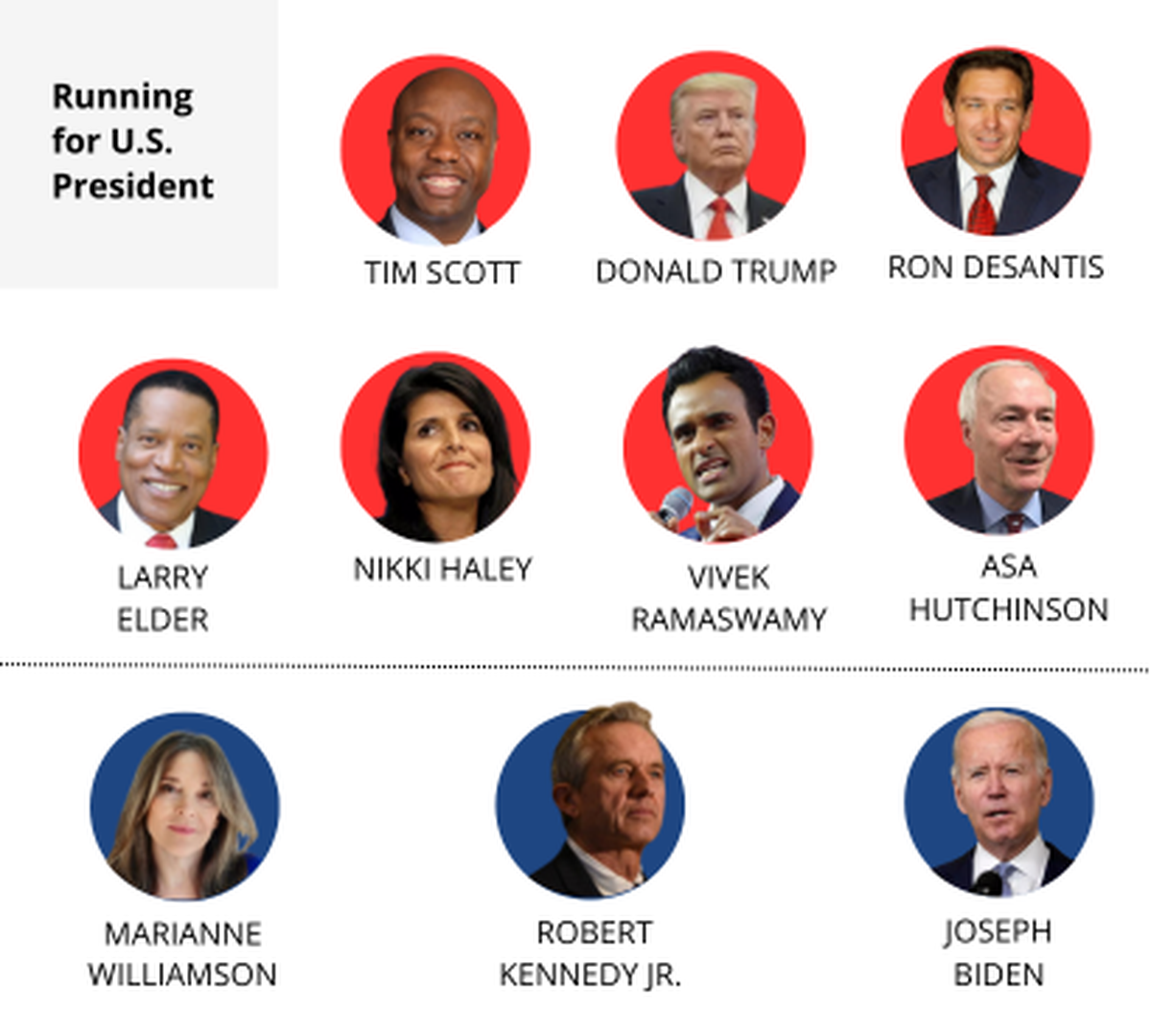Auto Dealers Intensify Pushback Against Mandatory EV Sales

Table of Contents
The automotive industry is facing a seismic shift. Governments worldwide are increasingly implementing mandatory electric vehicle (EV) sales quotas, aiming to accelerate the transition to a cleaner transportation future. However, this ambitious push is meeting significant resistance from auto dealers, who argue that the mandates present insurmountable financial and logistical challenges. The resulting tension is creating a significant debate around the feasibility and impact of mandatory EV sales. This article will explore the intensifying pushback from auto dealers, examining the key arguments against these mandates and their potential implications for the automotive industry.
<h2>Financial Burden of EV Transition for Dealerships</h2>
The transition to selling primarily electric vehicles represents a substantial financial burden for dealerships, particularly smaller ones. The high upfront costs associated with adapting to the EV market are a major concern. This isn't just about selling a different car; it's about a complete overhaul of infrastructure and expertise.
- High initial investment in charging infrastructure: Installing fast chargers and the necessary electrical grid upgrades are expensive undertakings, requiring significant capital investment that many dealerships may struggle to secure. This is especially true for those in less densely populated areas.
- Need for specialized technicians and training programs: Maintaining and repairing EVs requires specialized knowledge and tools different from those used for internal combustion engine (ICE) vehicles. Dealerships must invest in training their staff, which can be a costly and time-consuming process.
- Lower service revenue compared to ICE vehicles: EVs have far fewer moving parts than ICE vehicles, resulting in less frequent and less extensive maintenance needs. This translates to significantly lower service revenue for dealerships, impacting their overall profitability.
- Potential for inventory glut of EVs if demand doesn't meet projections: Dealerships risk being stuck with unsold EVs if consumer demand doesn't match the mandated sales quotas, leading to further financial strain.
<h2>Challenges in Consumer Demand and Market Readiness</h2>
Even with government mandates, the success of EV adoption hinges on consumer acceptance and a robust supporting infrastructure. Currently, several significant challenges hamper widespread EV adoption:
- Range anxiety among potential EV buyers: Concerns about limited driving range and the availability of charging stations remain a significant barrier for many consumers.
- Lack of widespread and reliable charging infrastructure: The current charging network is insufficient to meet the demands of a mass-market EV transition. Charging deserts, particularly in rural areas, are a major obstacle.
- High initial purchase cost compared to gasoline cars: The higher upfront cost of EVs compared to gasoline-powered vehicles remains a deterrent for many potential buyers, despite potential long-term cost savings.
- Limited consumer awareness of EV benefits and technology: Many consumers lack sufficient understanding of EV technology, charging processes, and the overall benefits of EV ownership.
<h3>Impact on Rural Dealerships and Smaller Businesses</h3>
The impact of mandatory EV sales is disproportionately felt by smaller dealerships and those located in rural areas. These businesses often lack the financial resources and access to expertise needed to make the necessary upgrades.
- Higher implementation costs for smaller dealerships: Smaller dealerships have less capital available for investing in charging infrastructure, training, and specialized tools.
- Limited access to capital for infrastructure upgrades in rural areas: Securing loans and attracting investment is more challenging for dealerships in rural areas with less densely populated customer bases.
- Reduced customer base due to lower EV adoption rates in rural communities: Lower EV adoption rates in rural communities mean that these dealerships have a smaller potential customer base for EVs.
- Potential for increased business failures and job losses: The inability to meet mandatory EV sales targets could lead to dealership closures and job losses, particularly in rural areas.
<h2>The Dealers' Arguments and Proposed Solutions</h2>
Auto dealers are not simply resisting change; they are advocating for a more realistic and sustainable transition. Their arguments center on the significant financial and logistical hurdles discussed above. They propose several solutions:
- Calls for government subsidies and tax breaks for dealerships: Financial assistance to help cover the costs of infrastructure upgrades, employee training, and inventory management.
- Proposals for a more gradual transition to EV sales: Phased-in mandates that allow dealerships to adapt gradually to the changing market demands.
- Advocacy for expanded charging infrastructure development: Government investment in building a nationwide network of reliable and accessible charging stations.
- Suggestions for greater consumer incentives to boost EV adoption: Tax credits, rebates, and other incentives to make EVs more affordable and attractive to consumers.
<h2>The Broader Implications for the Automotive Industry</h2>
The pushback from auto dealers has significant implications for the entire automotive industry and the broader environmental goals.
- Potential delays in achieving national emission reduction targets: Resistance to mandatory EV sales could slow down the overall pace of EV adoption and hinder efforts to meet emission reduction targets.
- Impact on the competitiveness of domestic automakers: The inability to effectively transition to EVs could hurt the competitiveness of domestic automakers in the global market.
- Long-term effects on jobs and economic growth: The transition to EVs must be managed carefully to avoid job losses and economic disruption.
<h2>Conclusion: Navigating the Complexities of Mandatory EV Sales</h2>
The transition to electric vehicles is crucial for environmental sustainability, but it must be implemented in a way that is economically feasible and socially equitable. Mandatory EV sales, while well-intentioned, present significant challenges for auto dealers, especially smaller businesses and those in rural areas. The high upfront costs, limited consumer demand, and inadequate charging infrastructure create a complex situation. Finding a balanced approach that considers both environmental goals and the economic realities of the automotive industry is crucial. We need a thoughtful discussion on the optimal path forward, incorporating phased-in mandates, robust government support, and meaningful consumer incentives. Contact your representatives to share your views on policies related to electric vehicle adoption and government regulations affecting the automotive industry. Let's work together to navigate the complexities of mandatory EV sales and build a sustainable automotive future.

Featured Posts
-
 L Avis De Gerard Hernandez Sur Sa Partenaire De Scenes De Menages Chantal Ladesou
May 12, 2025
L Avis De Gerard Hernandez Sur Sa Partenaire De Scenes De Menages Chantal Ladesou
May 12, 2025 -
 Onderzoek Naar Prins Andrew Verbindingen Met China Onder De Loep
May 12, 2025
Onderzoek Naar Prins Andrew Verbindingen Met China Onder De Loep
May 12, 2025 -
 Could Henry Cavill Be Marvels Next Wolverine In World War Hulk Fan Speculation
May 12, 2025
Could Henry Cavill Be Marvels Next Wolverine In World War Hulk Fan Speculation
May 12, 2025 -
 Bundesliga Triumph Bayerns Home Win And Mullers Farewell
May 12, 2025
Bundesliga Triumph Bayerns Home Win And Mullers Farewell
May 12, 2025 -
 Lily Collins Calvin Klein Campaign A Look At The Images
May 12, 2025
Lily Collins Calvin Klein Campaign A Look At The Images
May 12, 2025
Latest Posts
-
 Nine Faces One Destiny Predicting The Future Of The Papacy
May 12, 2025
Nine Faces One Destiny Predicting The Future Of The Papacy
May 12, 2025 -
 Choosing The Next Pope A Look At Nine Prominent Cardinals
May 12, 2025
Choosing The Next Pope A Look At Nine Prominent Cardinals
May 12, 2025 -
 The Papal Election Analyzing The Nine Leading Candidates
May 12, 2025
The Papal Election Analyzing The Nine Leading Candidates
May 12, 2025 -
 Nine Cardinals In The Running The Future Of The Catholic Church
May 12, 2025
Nine Cardinals In The Running The Future Of The Catholic Church
May 12, 2025 -
 Vatican Succession Profiling The Leading Contenders For The Papacy
May 12, 2025
Vatican Succession Profiling The Leading Contenders For The Papacy
May 12, 2025
